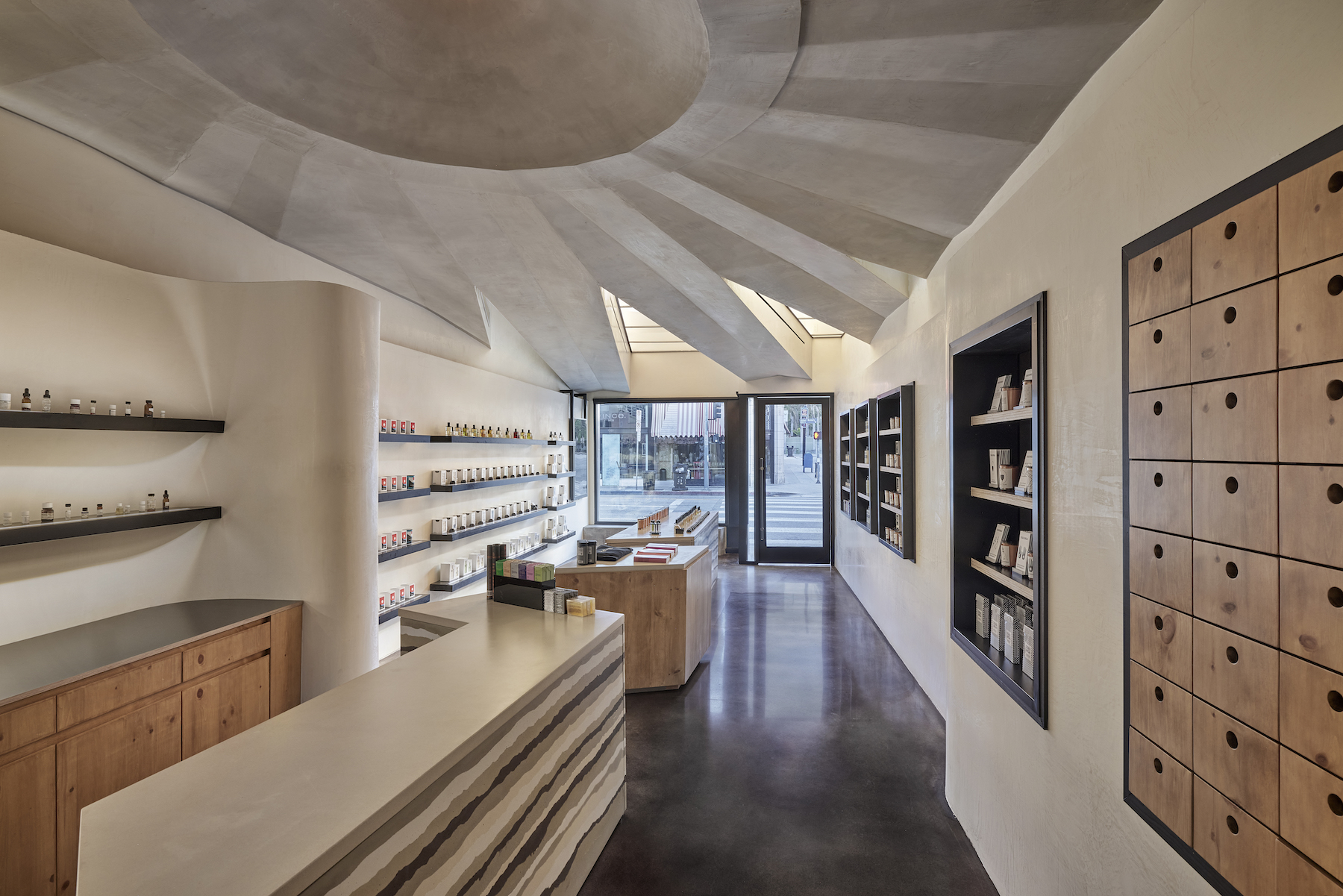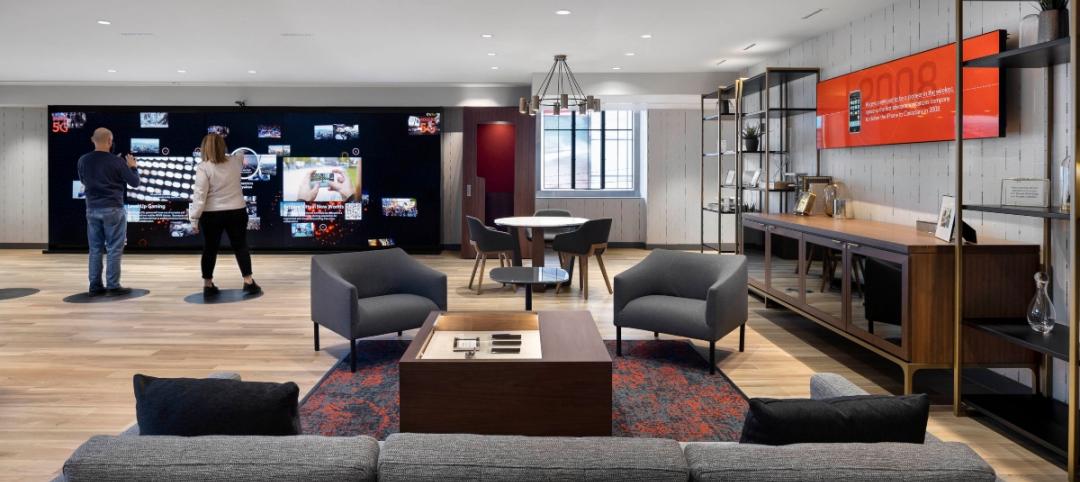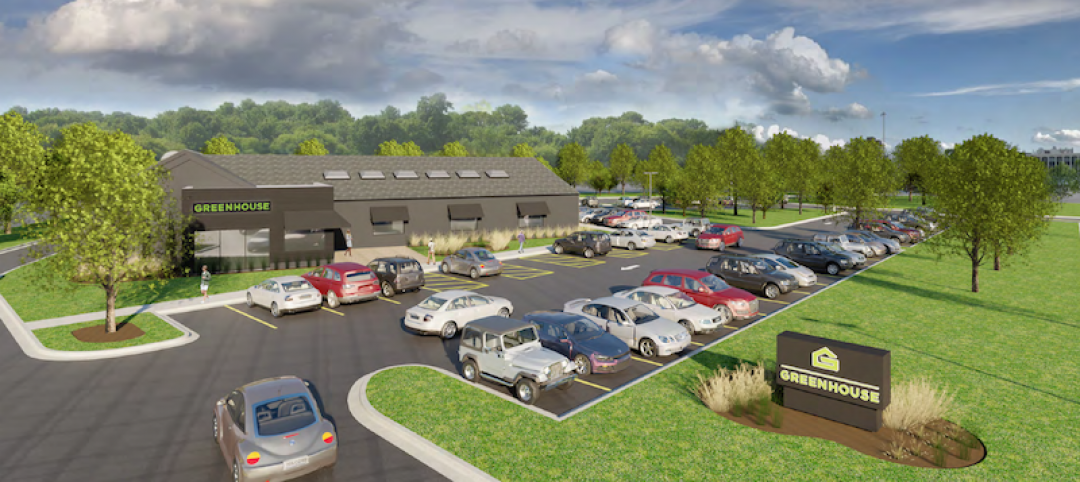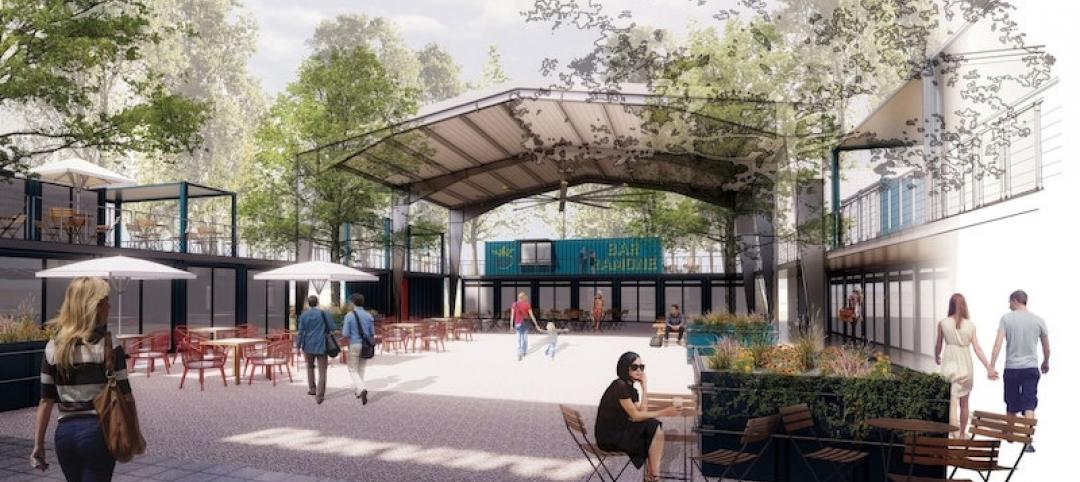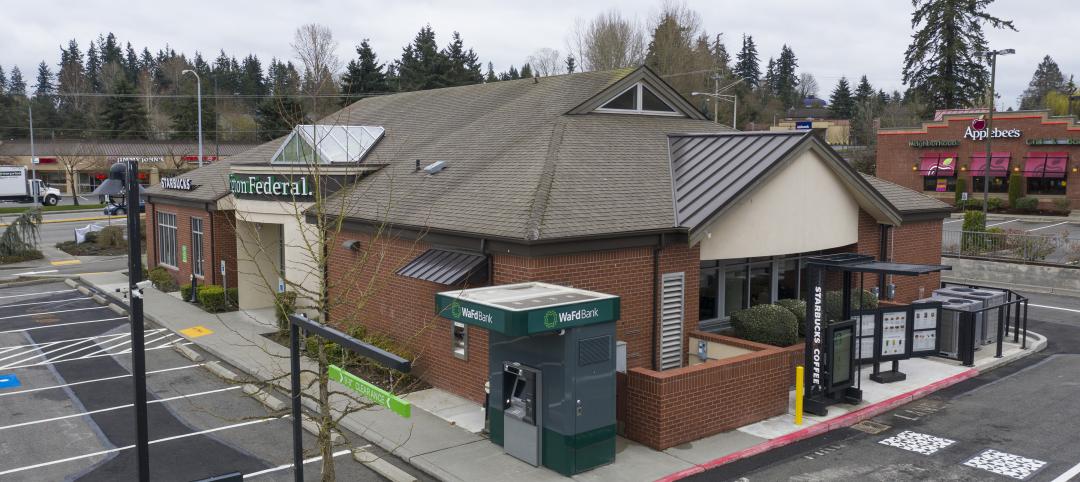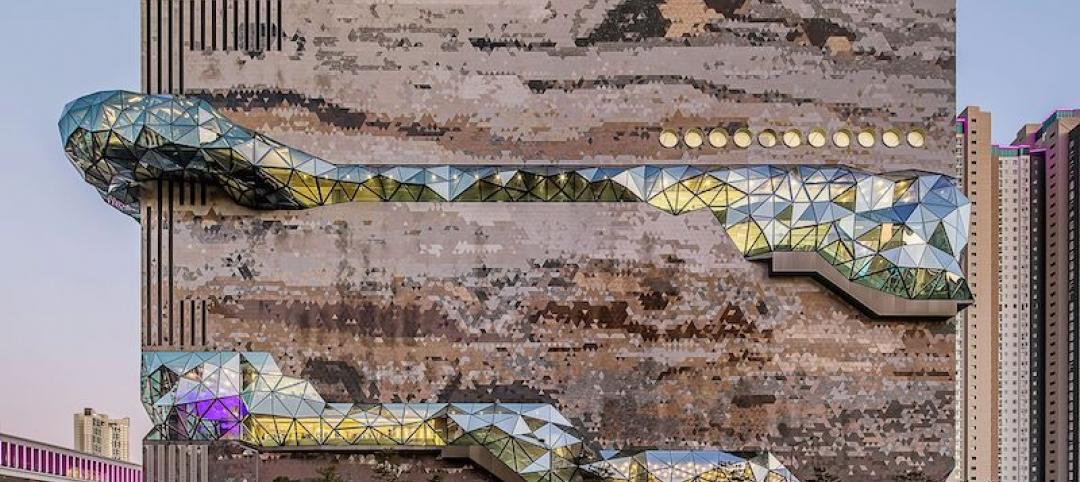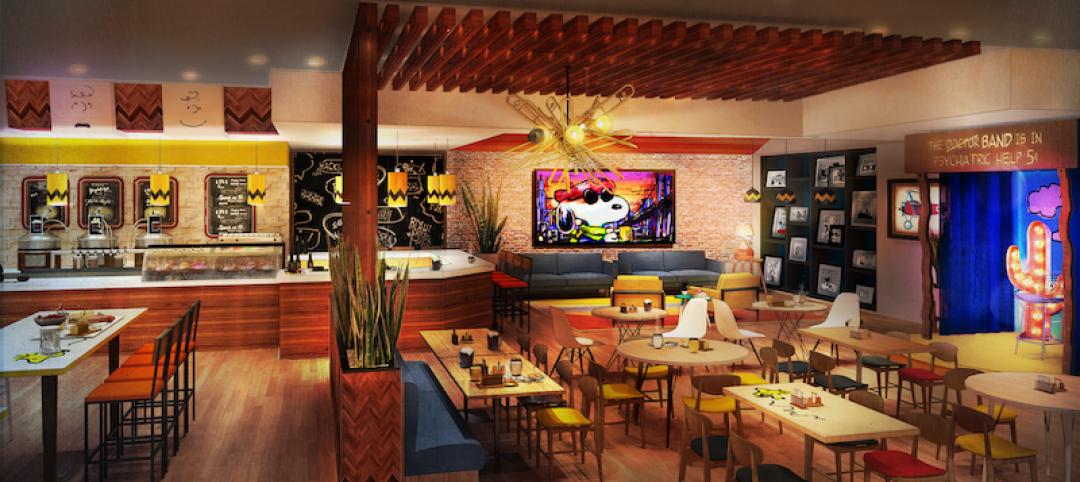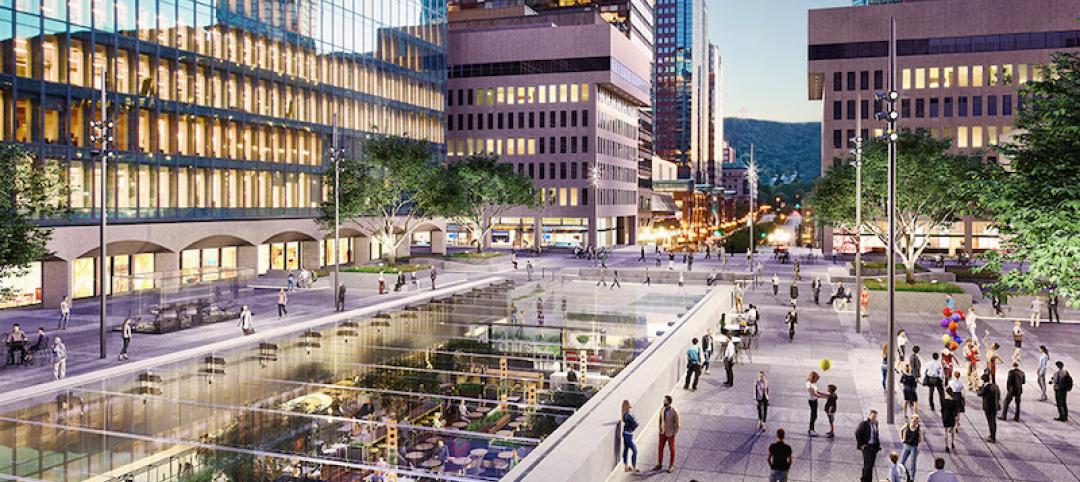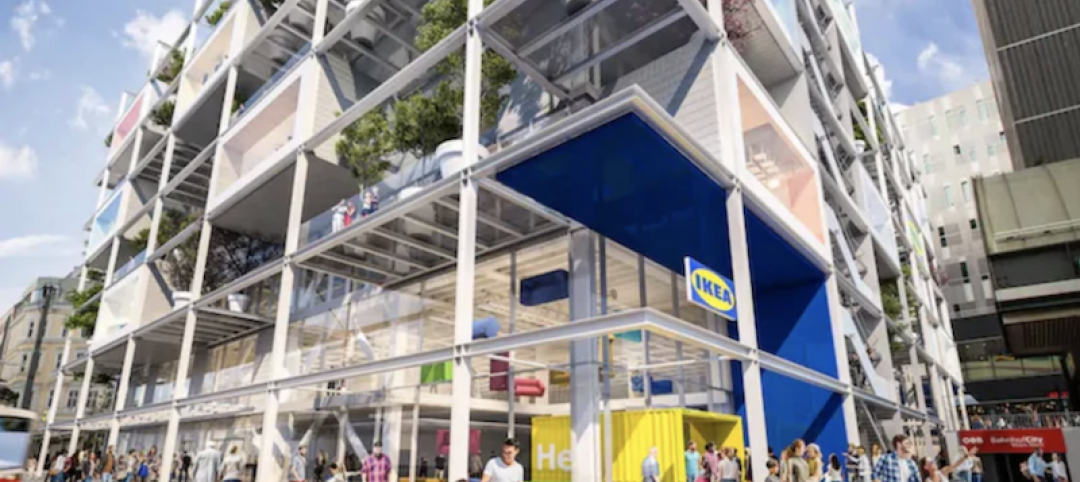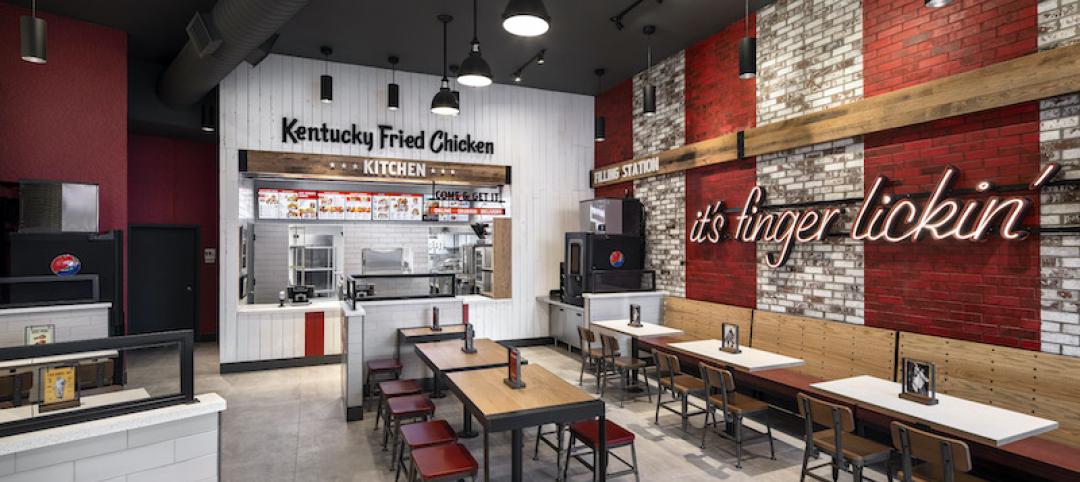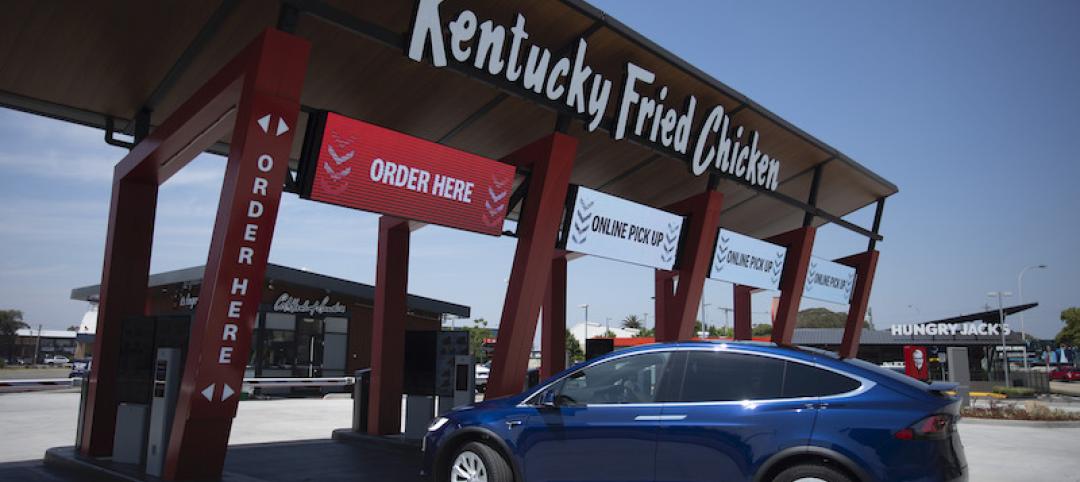U.S. retail and food services sales in July, at $696.4 billion, were up 3.2% over the same month a year ago, according to Census Bureau estimates. Luxury retail, in particular, has been ascending, the beneficary of persistent and post-COVID pent-up demand and robust retail expansion, according to a new Luxury Report 2023 released by Jones Lang Lasalle (JLL) this week.
The United States accounted for the largest share of the global luxury market, 34% of overall sales, and JLL foresees ongoing growth to $83.33 billion in 2028 compared to $69.51 billion in 2022. Last year alone, luxury retailers added more than 650,000 sf of new selling spaces and stores with enhanced ecommerce capabilities, and JLL anticipates further expansion in prime retail corridors, suburban malls, and shopping centers.
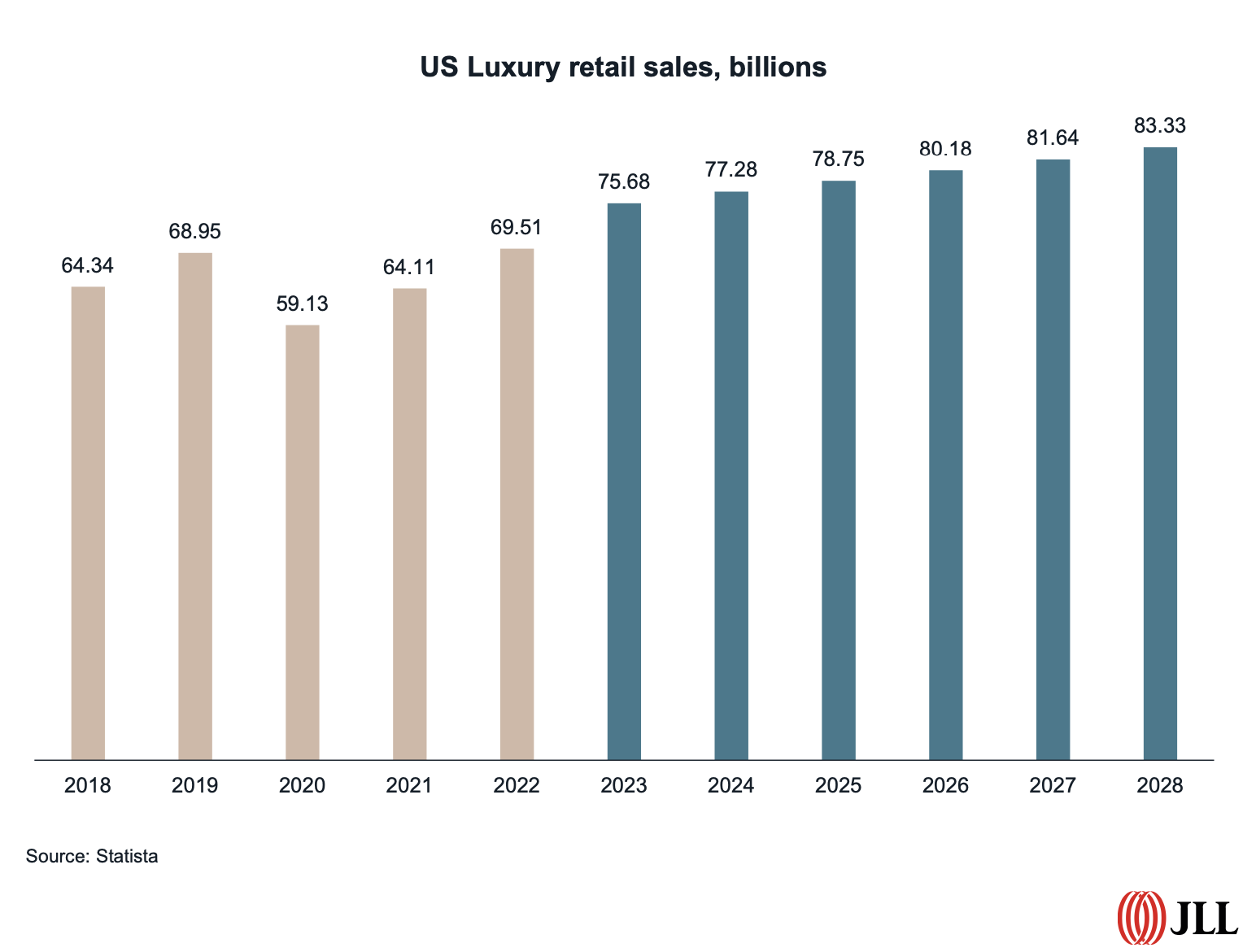
LVMH, the global giant whose brands include Louis Vuitton and Tiffany, increased its net store count last year by 108 to 5,664 units worldwide. Kering Group, which controls brands that include Gucci and Bottega Veneta, added 100 stores, bringing its total to 1,659.
The average new luxury lease size is now greater than 5,000 sf.
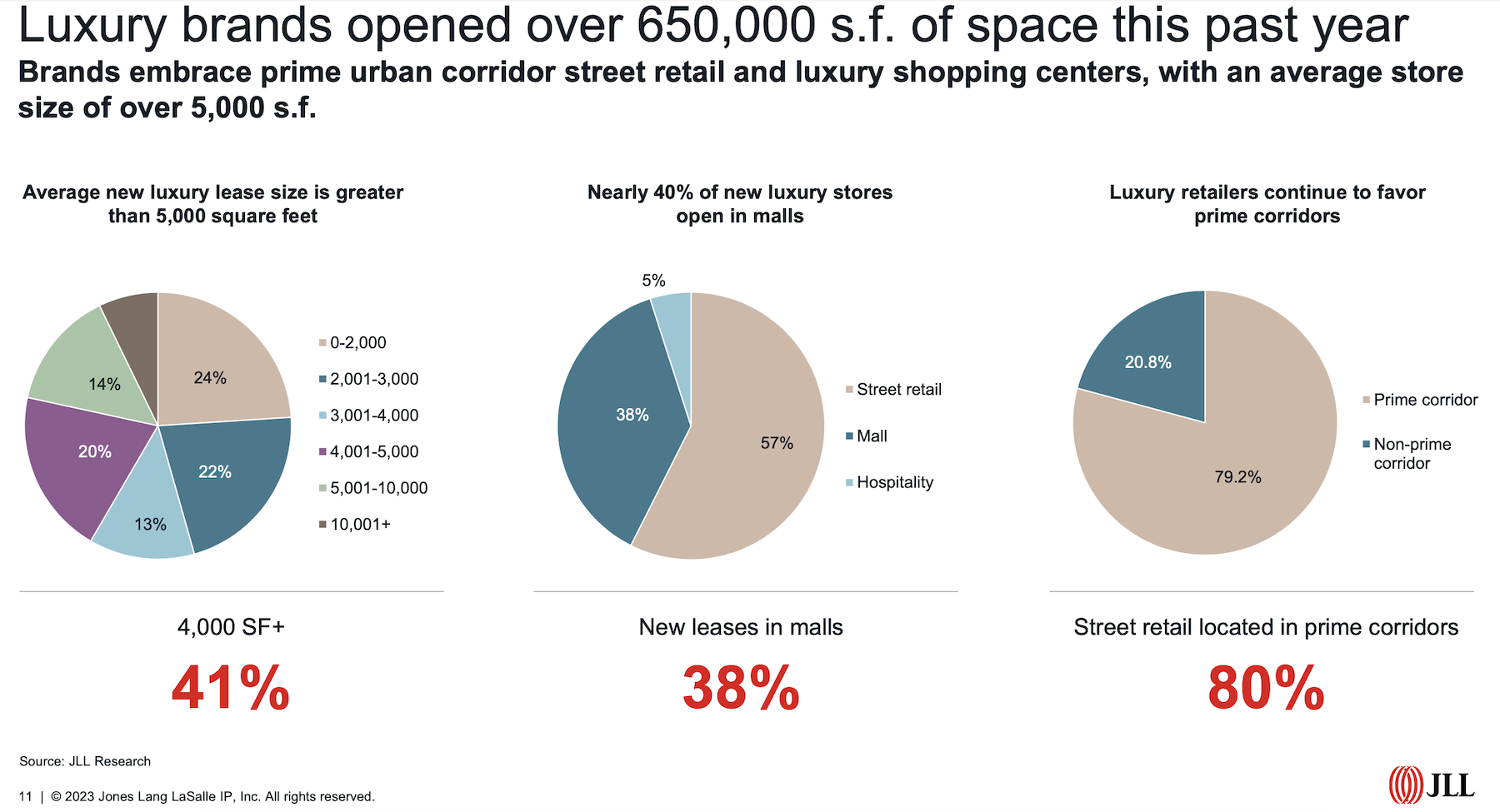
Luxury retail getting more comfortable in the Sunbelt
JLL suggests that the stars are aligned for bricks and mortar luxury retail. The retail sector as a whole continues to report solid fundamentals and low vacancy rates. Ecommerce, as a percentage of total retail sales, appears to have stalled at around 15%. And more than three-quarters of frequent luxury shoppers polled in a recent survey said they plan to visit a luxury store as often as or more frequently than they did last year.
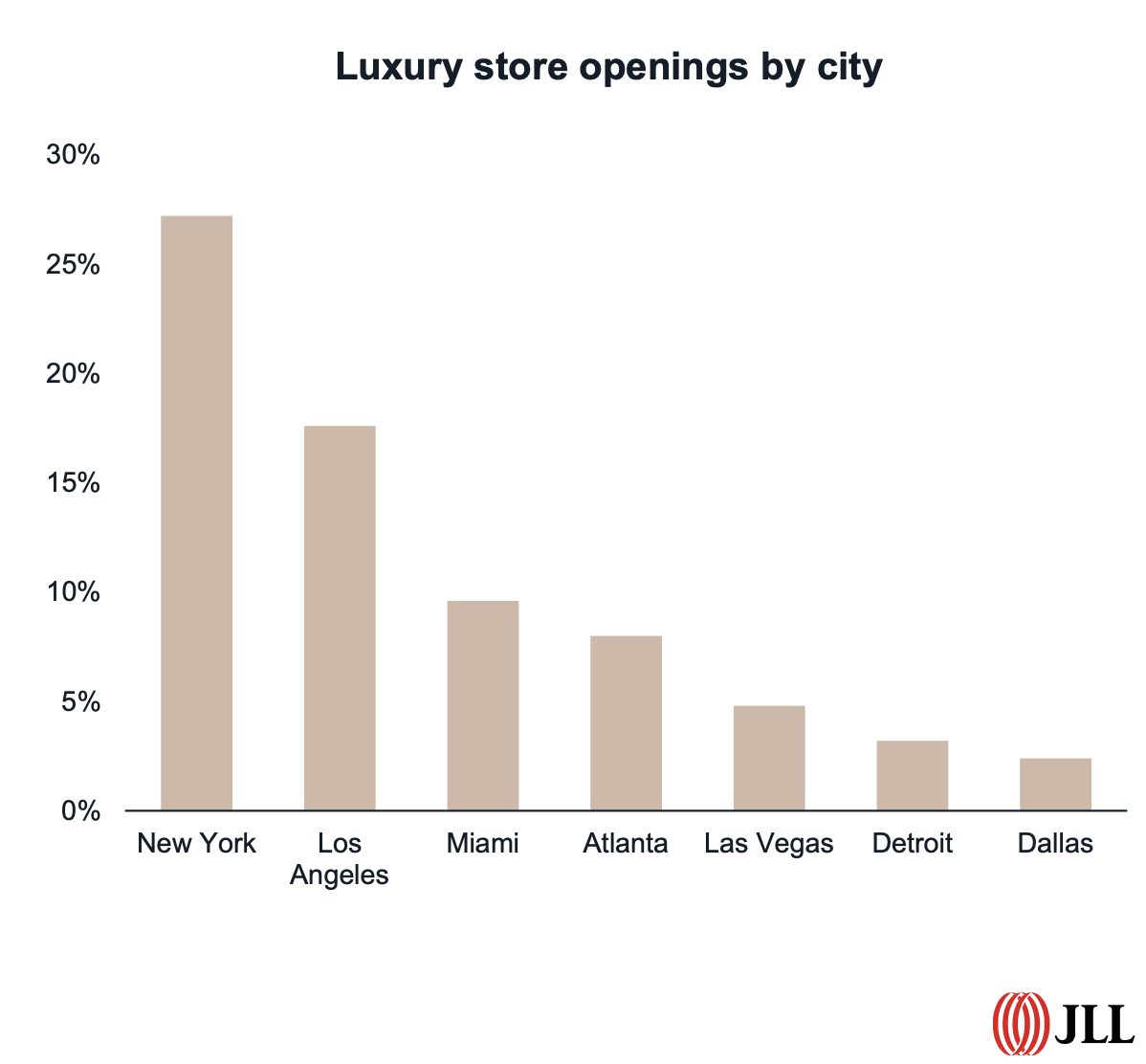
JLL is finding that while New York and California account for over half of all new luxury store openings in the U.S., the Sunbelt is seeing significant expansion in places like Atlanta, Miami, and Las Vegas. Surprisingly as well has been the willingness of luxury brands to open new stores in malls, which accounted for 38% of the space added last year.
A growing number of mall operators now devote entire wings to luxury brands. In Toronto, for example, The Oxford Properties-owned Yorkdale Shopping Centre is repurposing 100,000 sf of space to increase the mall’s luxury composition to 20% in 2025, from 13% today.
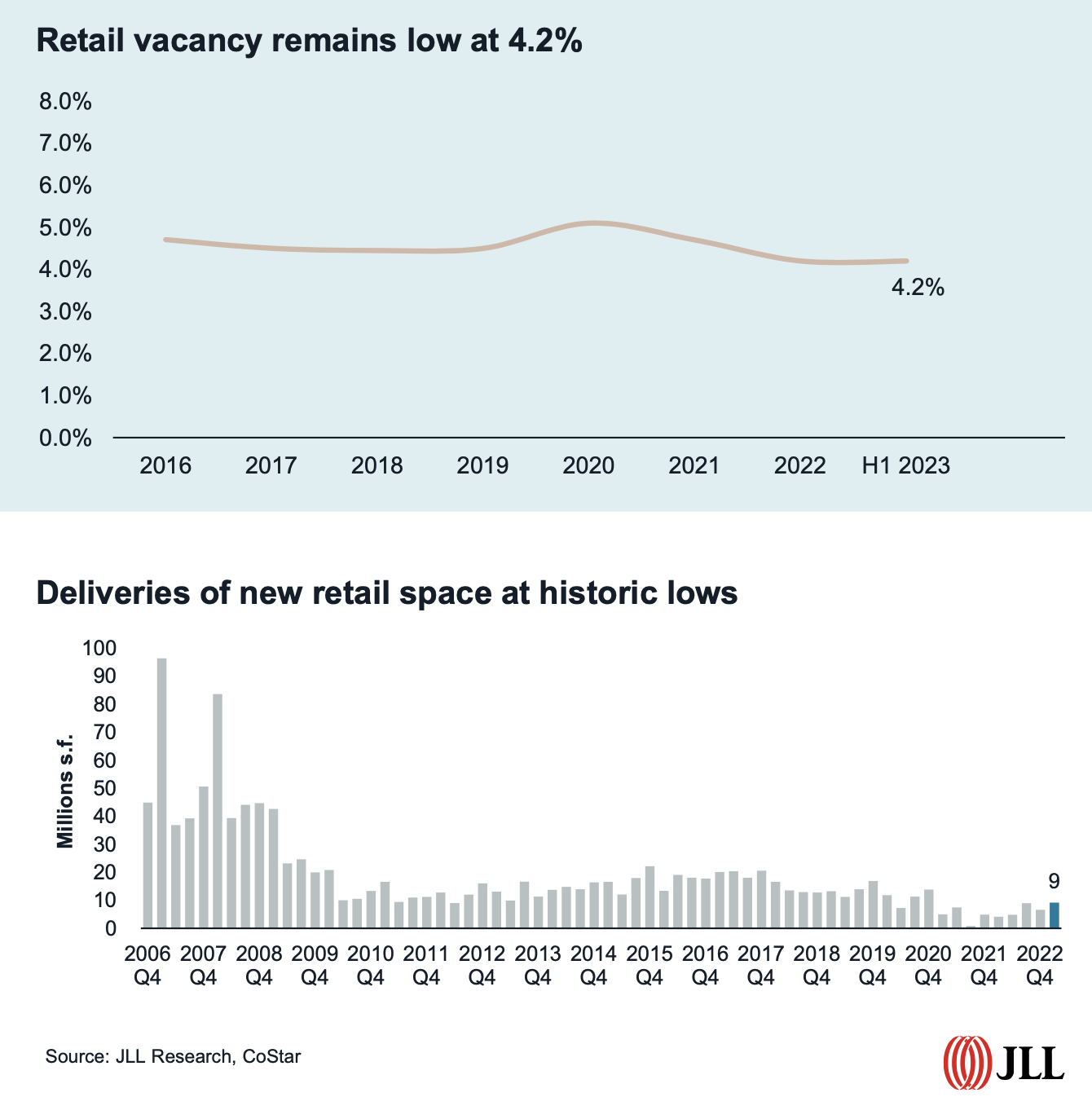
What’s also indisputable has been the preference of luxury retailers toward street retail located in prime corridors, which account for more than 45% of all new luxury leasing activity in the U.S. Prime corridors include New York City’s Times Square, which saw a 29.1% increase in corridor foot traffic between July 2022 and 2023. Boston’s Newberry Street corridor saw an 18% year-over-year increase in foot traffic. The Beverly Hills Triangle accounted for 41% of all luxury store openings in Los Angeles last year, including Chanel’s largest flagship store in the U.S., a 30,000-sf lease.
Quoting CoStar data, JLL notes that cities where rents are rising fastest, like Las Vegas, have also been magnets for luxury dealers.
Secondhand products offer sales alternatives
Last year 12% of new luxury leases were for luxury boutiques, a growing category within this sector, says JLL. Brands in this category include Kith, Elyse Walker, and The Webster.
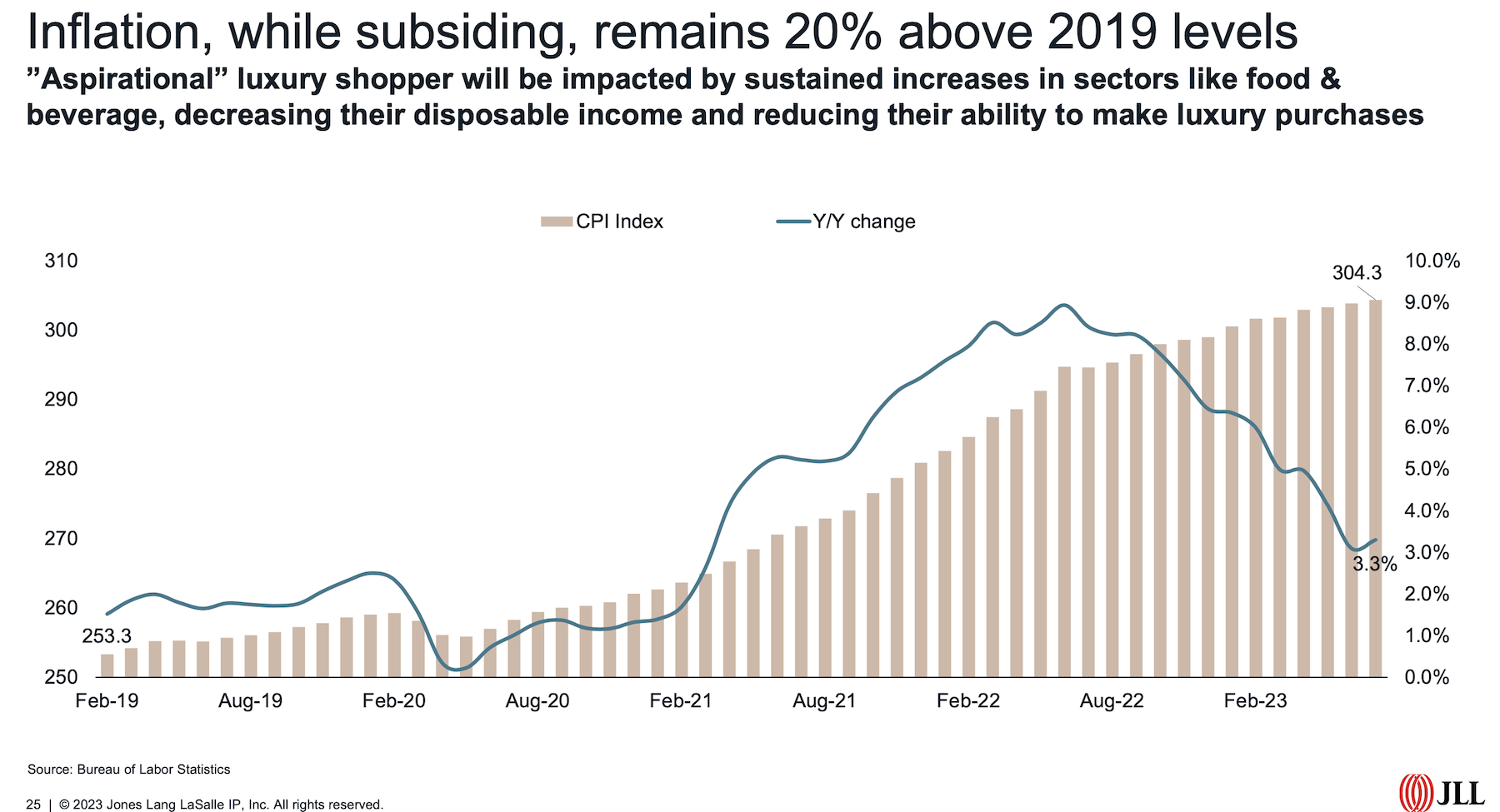
But there are some warning signs that could slow the luxury juggernaut. For one thing, there’s a lack of available retail space in an industry sector with historically low new deliveries. For another, so-called aspirational shoppers are still struggling with inflation at every retail level, not the least being luxury.
JLL reports that the market for secondhand luxury products grew by 28% in 2022. (Earlier this year, eBay launched “Certified by Brand,” which offers new, certified pre-owned, and limited-edition luxury products.) With more consumers concerned about environmental issues, brands that want to remain relevant must demonstrate a willingness to invest in the circular economy.
Related Stories
Retail Centers | Jul 30, 2020
The future is a numbers game for retail and restaurants
Brick-and-mortar retailers, already gasping for air under pressure from ecommerce, were dealt a critical blow by the spread of the coronavirus that forced most stores and restaurants to close, or at best operate as carryout- or delivery-only providers.
Retail Centers | Jun 17, 2020
New cannabis dispensary under construction in Northbrook, Ill.
The project will be a national flagship location for Greenhouse.
Modular Building | May 22, 2020
‘Cargotecture’ is coming to North Carolina’s Research Triangle Park
Boxyard RTP, made from 38 shipping containers, will serve as a community gathering and social space.
Coronavirus | Apr 13, 2020
COVID-19 alert: City conducts a 'virtual building inspection' to allow Starbucks and bank to open
Bothell, Wash., issues a certificate of occupancy to developer after inspecting the property online.
Retail Centers | Mar 27, 2020
New South Korean retail building looks like a molting insect
OMA designed the project.
Retail Centers | Feb 28, 2020
Eat with the Peanuts Gang in this new experiential cafe concept
The McBride Company partnered with Peanuts Worldwide LLC to design the concept.
Retail Centers | Jan 30, 2020
An all-glass roof hovers above a refurbished shopping mall in Montreal
This $200 million project provided the installer, Seele, with some valuable lessons learned working with large panels in colder weather.
Retail Centers | Jan 21, 2020
New Vienna IKEA will include green façades and no parking
The building will include 160 newly planted trees.
Retail Centers | Dec 16, 2019
KFC opens urban prototype in the Bronx
FRCH NELSON designed the project.
Retail Centers | Nov 13, 2019
World’s first drive-thru only restaurant in Australia
FRCH NELSON designed the project.


